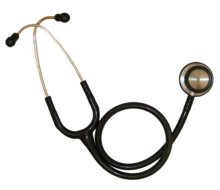
MEN WITH LOW SPERM COUNT CAN STILL FATHER A CHILD
… Having a low sperm count decreases the odds that one of your sperm will fertilise your partner’s egg, resulting in pregnancy.
Nonetheless, many men, who have a low sperm count are still able to father a child.
Now, it is reasonable to ask, what could cause you to have a low sperm count or abnormal sperm?
We will briefly talk about some of the problems responsible for this kind of infertility. Retrograde ejaculation is a good example. In this condition, semen ejaculates backwards into the bladder instead of out the penis. Usually a previous surgery is the cause. When you have such an abnormality, you may not produce enough sperms in an ejaculate.
Also, the absence of the main sperm-supplying vessel (known as the vas deferens) is a genetic problem. An obstruction can occur anywhere between the testicles and the penis to cause blockage of sperm delivery.
Antibodies can abnormally attack a man’s own sperm on their way to the egg. Up to one in four of infertile men have what is described as idiopathic infertility. That means they have abnormal or low sperm counts for no identifiable reason.
Varicocele is quite commonly associated with low or abnormal sperm parameters. It is an abnormal collection of bulging veins above the testicle.
Undescended testicles is another problem. Other causes include infections in the testicles (orchitis), the prostate (prostatitis), or elsewhere in the body that causes a fever.
In some cases, these problems can be reversed but other times they can’t. An evaluation is the only way to sort it out.
Sometimes, making sperm isn’t really the problem, rather, the problem is getting the sperm where it needs to go. If you are a man with this type of male infertility, you may have normal sperm in your testicles. But the issue is that the sperm in your semen is very low in number, or not there at all.
Do not lose hope because there is treatment and millions of men with such problems have benefited from available treatment. The fact is that several men with zero sperm count have become proud fathers of their own biological children.
In many cases in the past, the old fertility treatment methods didn’t work, and it meant lifelong male infertility. Today, however, assisted reproductive techniques such as Intracytoplasmic Sperm Injection are available. In ICSI, a single sperm is injected through a tiny needle into an egg. The fertilised egg is then implanted in the uterus. ICSI can be performed when sperm counts are extremely low or abnormal.
Modern male infertility treatments are available to give sperm an artificial boost to get into an egg. With such scientific advancement, conception is possible even for men with very low or abnormal sperm.
Sperm and semen analyses can help assess your sperm count, their shape, movement, and other variables.
Generally, a higher number of normal-shaped sperm means higher fertility but exceptions are common. You could be diagnosed with low sperm count or abnormal semen and still remain fertile. In the same vein, about one in five of infertile men are known to have normal semen and plenty of normal sperm.
If you don’t produce any active sperm in the ejaculate, it is often possible to extract sperm from the testicles. But are there things you can do on your own to maximise your fertility. For one, don’t do things to hurt your chances of having viable sperm. Hard drugs, tobacco, and more than two alcoholic drinks a day harm sperm production.
Diagnosis of male infertility brings about profound disappointment. For some men, no male infertility treatments seem to help. Finding out that you’re infertile can be an unpleasant surprise, to say the least. You may feel emotional stress with a diagnosis of infertility.
One thing you should not do is to confuse libido and potency with fertility. Most problems with male reproduction do not affect the ability to produce male hormones, sexual function or maleness. But even if things look bleak, there is always hope if you keep trying.
To know for sure if you have no sperm in the ejaculate, you need at least two semen analyses and at least one should be done using advanced sperm technology.
In general, there are four explanations why there could be no sperm in the ejaculate. One is that the testes are making sperm but there is a blockage. Two, the brain is not stimulating the testes to make sperm, or three, the testes are not producing any sperm. Lastly, the testes may be producing a tiny amount of sperm but it is not coming out in the ejaculate.
If sperm is produced but there is evidence of a blockage, the chances of getting your partner pregnant remains very good. If it is a reversible blockage, this can sometimes be fixed with a minor procedure.
If there is not a reversible problem such as a missing vas deferens (tube that carries the sperm), success rates of retrieving sperm approach 100 per cent. Pregnancy rates in this situation are usually greater than 50 per cent with IVF depending on factors such as your age, your partner’s age and the health of your female partner.
If you have no sperm at all in the ejaculate and there does not appear to be a blockage or a brain issue, can you still get your partner pregnant? The answer is yes. Men with no sperm in their ejaculate, who likely have a problem with sperm production can achieve pregnancy. All this is possible thanks to modern assisted reproductive techniques such as IVF and ICSI.
Sperm may be retrieved with either a minor procedure or a more extensive procedure based on your particular situation. The success rates in retrieving sperm are usually about 50 per cent in this situation.
The fact is that blockage can occur at any level including within the testicle, in the tubes that drain the testicle, in the epididymis, in the vas deferens, near the ejaculatory ducts or in the urethra.
When you don’t have enough sperm, there’s less chance that they’ll reach and fertilise the egg, which can lead to fertility problems.
Even if you have a normal sperm count, they still have to be healthy enough to make the journey from your partner’s vagina to the cervix and uterus to the fallopian tubes. If they’re not, you’ll have a hard time getting her pregnant.
@ Punch Newspaper






